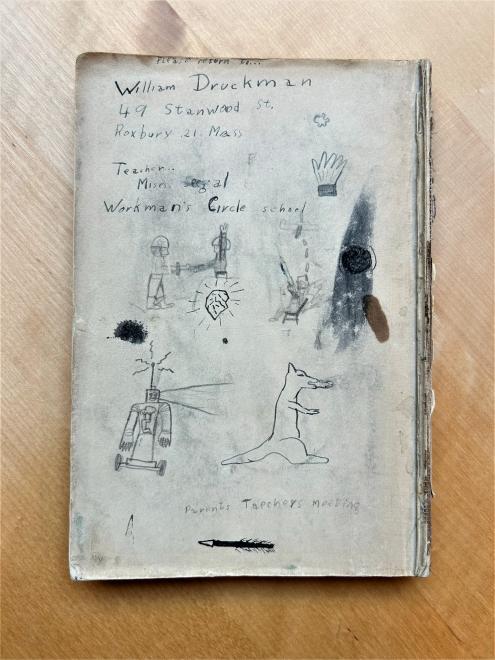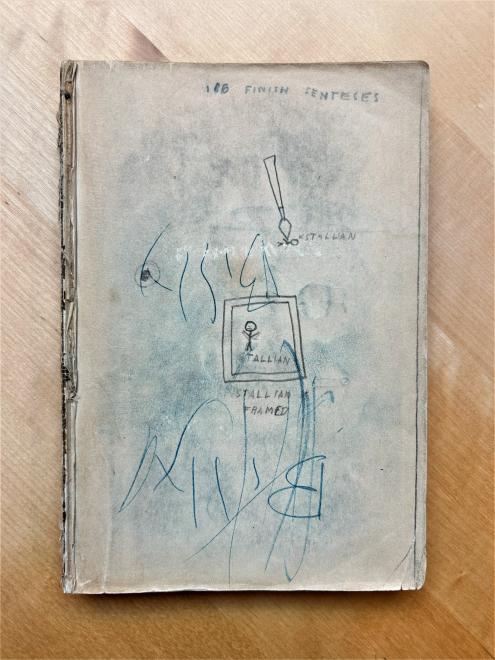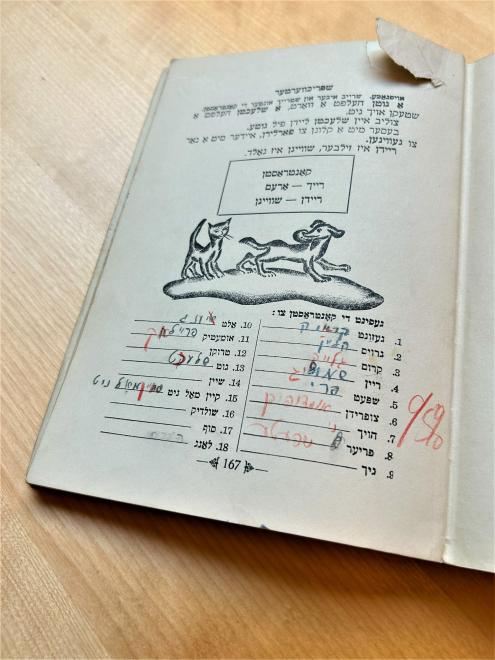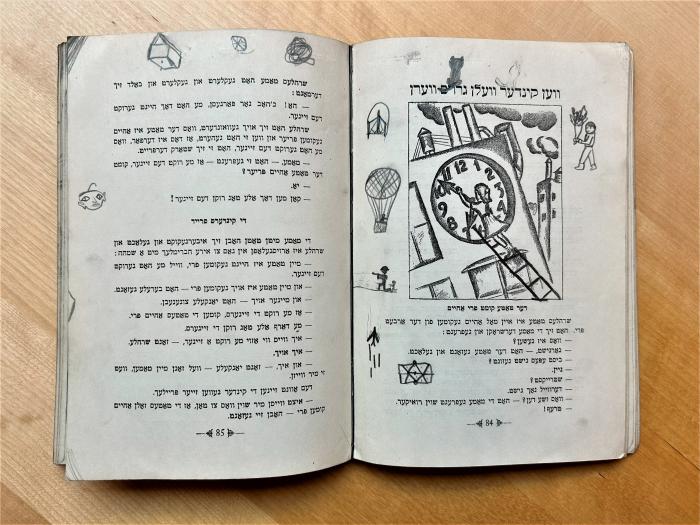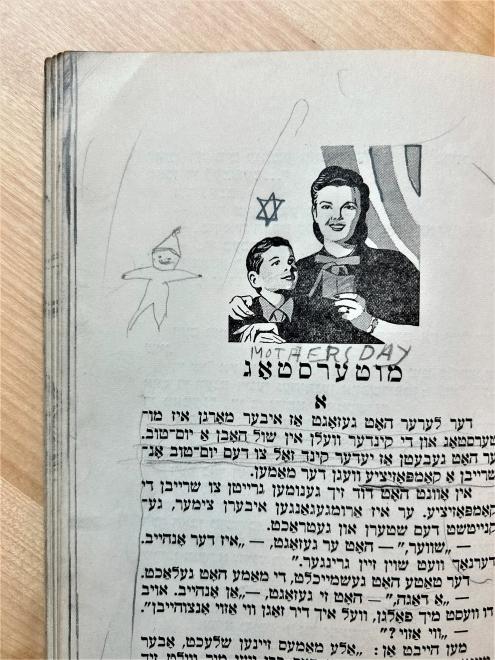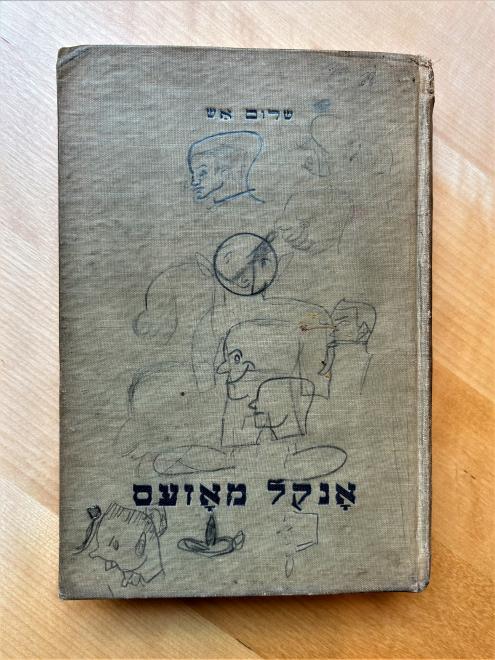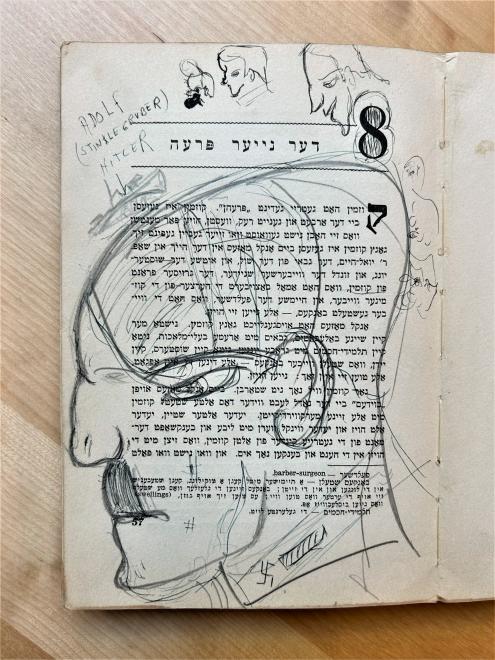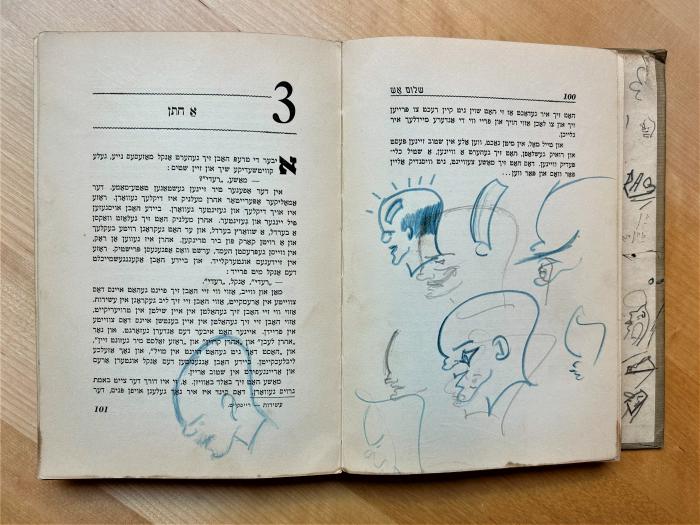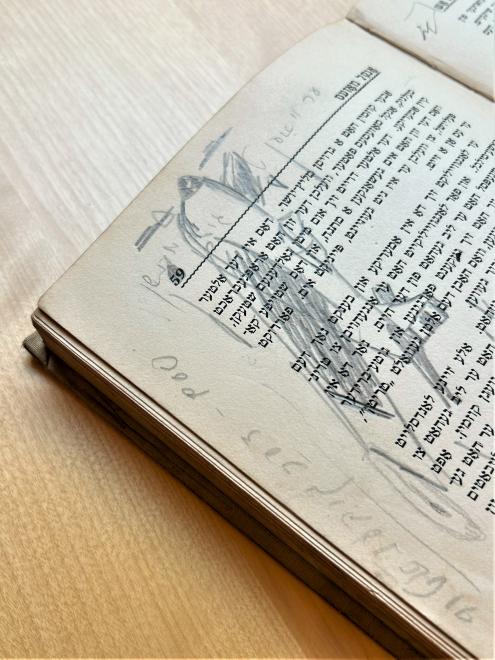The Doodle Anti-Fascist Committee
Yiddish Textbook Doodles from Two Budding Cartoonists
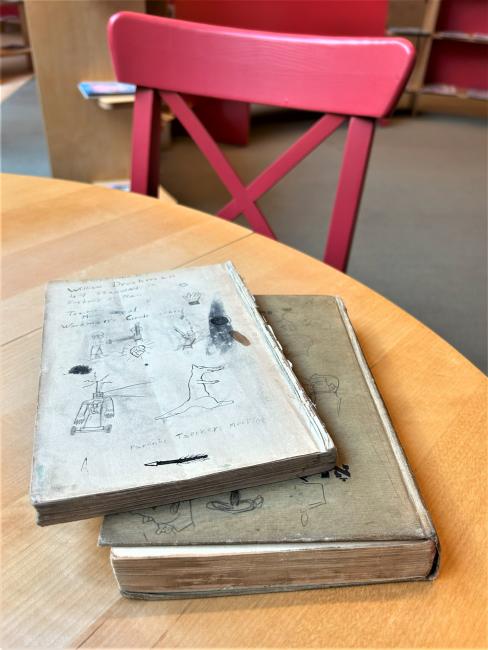
Although most of the books in our learning materials collection are in far-from-pristine condition, there is one type of wear and tear that can’t help but bring a smile to our faces—children’s doodles! And William (Billy) Druckman’s copy of Mayn shprakhbukh (My Language Book), published by the Arbeter ring (Workers Circle) school system in 1948, is a shining example. Who can say what “Misess Seegal,” Billy’s Yiddish-language instructor, thought about his masterpieces in graphite on textbook paper, but we as bibliography fellows were certainly charmed by the robots, gremlins, and airplanes that adorn an otherwise typical mid-century secular Yiddishist shule primer.
Billy's Doodles
During our time at the Center, we have heard many people reminisce about going to afternoon or Sunday shule, but Billy’s Shprakhbukh is a funny reminder that kids will be kids, no matter the generation—a bored child doodling over their homework tells us just as much about daily life in these schools as the achievements of the more eager students. Not that Billy was a complete daydreamer—he drew a Star of David by a Mothers’ Day reading, a bit of yidishkayt for an otherwise secular holiday. And he paid attention to world events—after learning of Stalin’s purges of leading Jewish intellectuals, Billy drew “Stallian” (Stalin, in Billy-loshn) being crushed by a giant pen.
Sholem Asch: A Student's Rendition
Billy wasn’t the only student taking down tyrants in the margins of his homework. Though the artist remains anonymous, this skillful send-up of Adolf “Stinklegruber” Hitler can be found in a 1940 Worker’s Circle classroom edition of Sholem Asch’s sweatshop novel Onkel Mozes (Uncle Moses). While Billy and his compatriots may not have always been the most attentive Yiddish students, their doodles reveal a youthful concern with Jewish resistance and the power of the Yiddish word. As every good student of Yiddish knows, di pen shist erger fun a fayl (the pen is mightier than the sword).
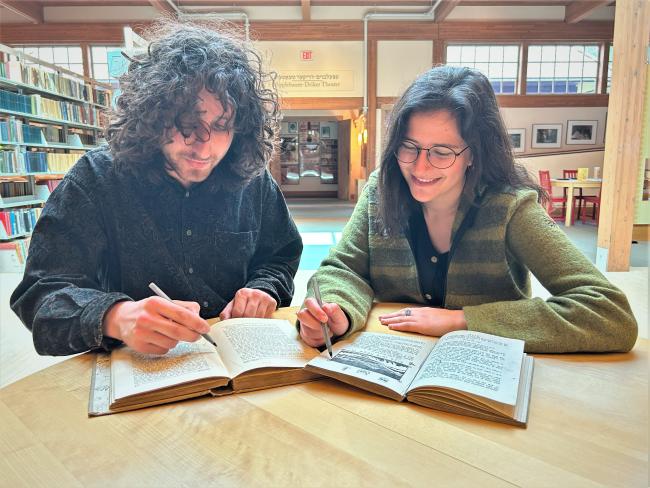
—Joey, Charlotte, and Caleb, the 2022–2023 bibliography fellows

